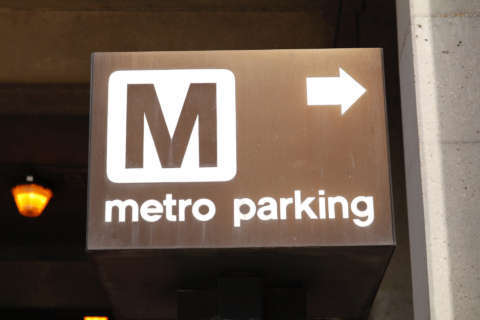
WASHINGTON — Metro didn’t actually fall short of required goals for contracts given to minority-owned or woman-owned businesses, top staff responsible for the Disadvantaged Business Enterprise program told a skeptical Metro Board committee.
Rather, the agency just messed up all the paperwork, staffers said Thursday.
Franklin Jones, who took on the responsibility of building the program when he was hired about a year ago to lead Metro’s Department of Fair Practices, told a Metro Board Committee that he was essentially starting over.
“I would not say from scratch, but very close,” he said.
Metro has repeatedly failed to meet federally required goals for contracts and payments to minority- or woman-owned businesses for several years — including a steep decline in its reported numbers since 2014 to an initial finding of just 8 percent of spending in the first half of fiscal year 2017.
The manual processing of some records and the complete absence of others, Jones said, made it hard for him to say whether those results were accurate. He said he hopes that a full accounting will lead to better reported results.
Sylvia Edwards, who is now Metro’s director of small business programs, said that in the past, staff were never trained on their key role in handling contracts, and instead had been focused on certifying businesses as eligible for the program. Still, those applications were taking months to process until recently.
“The DBE program went downhill,” Edwards said. “They didn’t really get the training for contract compliance, and you can tell from the amount of data that they failed to implement and put into the system, and it kept going downhill,” she said.
Metro has now raised the standards and qualifications required to work in the office.
Pending move to an electronic system
Beginning next month, Metro plans to transition to a new electronic contracting-and-payment system that will require all contractors to enter information about their work and the work of subcontractors in order to get paid.
Metro hopes that system will allow for more automated processing of payments and reports on how much money and how many contracts are awarded to disadvantaged businesses. That could clear up staff time to focus on audits and analyses to prevent potential fraud and to ensure opportunities are provided as required by contracts.
“[The Federal Transit Administration] had said you need a copy of every subcontractor that’s in the system. That wasn’t done, so how could we monitor to make sure that these subs were on board and they hadn’t been substituted?” Edwards said of the past setup a few years ago.
At that time, Montgomery County Metro Board member Kathy Porter said, the board of directors found major problems with the qualifications and abilities of the people working in the office.
“The more we dug, the worse it got,” Porter said Thursday.
The fixes now are meant to address FTA directives and Jones’s internal review.
“I believe that we’re at least 75 percent in terms of where we need to be,” Jones said.
He plans to hire an analyst and an auditor by March 31 to work alongside some of the four contractors that have been handling the office’s work for the last several months.
Still, the data from the past year apparently has gaps in it.
Jones hopes an automated system that was just activated in conjunction with the new contracting system could help, but it will still require much of that older data to be filled in by hand for the latest fiscal year, which was a problem in the first place.
While Metro lowered its goal for disadvantaged business enterprise spending in 2016 from 25 percent to 22 percent, it still failed to meet it — hitting 17.4 percent in federal fiscal year 2015, 11 percent in 2016, and 8 percent in the most recent six-month period with data available.
“If someone’s looking at this and doesn’t know anything about anything, this is not a good trend. … A lot of people would question what’s going on,” Alexandria City Council and Metro Board member Paul Smedberg said.
“The method for compiling and analyzing that data could have been a lot better,” Jones responded.
‘The manual system had some gaps in it’
The most recent 8 percent number is incomplete, Metro Chief of Internal Business Operations John Kuo said, and it’s expected to rise as further reviews are done.
“The manual system had some gaps in it, if you will, that did not allow us to get down to the level of specificity that is required,” Jones said.
The system was missing information about subcontractors, payment dates and some certifications. “We would have to speculate as to how they reached the prior numbers,” Jones said.
“How are we to have confidence in those numbers if you don’t have confidence in your current numbers because there are these deficiencies or gaps? How are we to have any confidence in these other numbers that you’re reporting?” Smedberg asked.
The bones of the improved program have now been built, and it will work well as long as Metro hires the right people, Jones said.
“I am confident that we need to re-evaluate the numbers from the first half of FY17, and that’s what I’m committing to doing. As to the prior years, I was not here, so I don’t have any insight,” he said.








